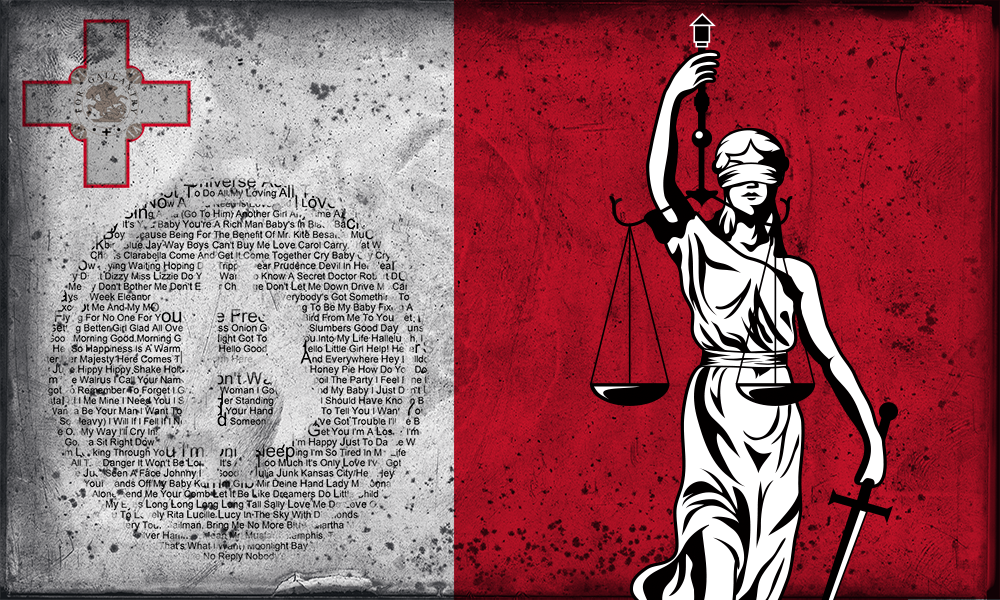
This part will be the completion of our research and will finally put an end to it. Or maybeellipses... After all, you can’t just take andstop churning out prohibitions. You cannot let go of the market and make it a little freer so that the system itself comes into balance. Allow people to choose for themselves what to buy, what to sell, and what to leave for a rainy day. No, the state is definitely a form of order, and there is no way without it. But is it worth trying to regulate something that does not require it? This time it’s three on three: loyal Australia, New Zealand and Malta against India, Israel and Nigeria, where governments are not particularly fond of cryptocurrencies. However, Nigeria is a special issue altogether. But first things first.
</p>Previous parts of the study:
On the issue of national characteristics of thermorectal cryptanalysis or "Where cryptans live well" - part 1
On the issue of national characteristics of thermorectal cryptanalysis or "Where cryptans live well" - part 2
On the issue of national characteristics of thermorectal cryptanalysis or "Where cryptans live well" - part 3
On the issue of national characteristics of thermorectal cryptanalysis or "Where cryptans live well" - part 4
Australia

The government and ordinary people in Australia are quiteknowledgeable about modern technology. Therefore, a significant part of the country's population has already managed to invest part of their savings in cryptocurrencies. Naturally, this area is now regulated in Australia at the state level. At the same time, any prohibitive measures are considered irrational, because this will allow the black market to grow, which will only increase the number of fraudsters per capita. In general, there are no bans or other "prudent" restrictive measures.
***
Legislative status
There is a legal framework. Free traffic is allowed. Government attitude is positive
Basic documents and definition of cryptocurrencies
Despite the loyalty, the governmentAustralia only legalized cryptocurrencies in 2017, which made bitcoins property in the eyes of the law and allowed them to be taxed on Capital Gains Tax (CGT).
Additionally, under the Corporations Act, cryptocurrencies are defined as a financial product, which is subordinate to Australia's existing financial services regulatory regime.
***
Restrictions and taxes on the use of cryptocurrencies
The legislation does not provide for a general ban on the issuance, mining, ownership or trading of cryptocurrencies.
***
Administrative and criminal prosecutions for cryptocurrency ownership
There are no specific penalties for owning cryptocurrency.
***
Limits and taxes on cryptocurrency trading
See Restrictions and Taxes on Cryptocurrency-Related Business
***
Administrative and criminal prosecutions for cryptocurrency tradingth
Trading is not a prohibited activity
***
Restrictions and taxes on businesses related to cryptocurrencies
All powers to control cryptocurrenciesare in the good hands of AUSTRAC (Australian Transaction Reporting and Analysis Center). In 2018, this government agency introduced stricter cryptocurrency exchange rules. In accordance with them, exchanges operating in Australia must register with AUSTRAC, verify the identity of users (as well as their "suspicious" transactions), keep a log of logs and, in general, comply with all obligations to the state for other reporting. All illegal trading platforms are subject to prosecution under the criminal code and tough financial sanctions.
It is worth clarifying the basic rules:mandatory registration, fulfillment of AML / CTFA requirements, client verification, reporting on all dubious transactions (all cryptocurrencies without exception), transferring data to the regulator on all transactions exceeding the threshold of 10 thousand AUD (~ 7180 USD), storing information on electronic trading activities sites (minimum - 7 years).
It is possible to mine cryptocurrency in Australia for quitelegal grounds, however, only if the miner uses his own (paid) electricity and computing power (purchased at his own expense).
________________________________________
Income tax in Australia is a controversial issue andthe subject of much debate. Despite public objections, the Australian Taxation Office (ATO) continues to treat cryptocurrency as an asset that is held or traded (rather than as money). In general, cryptocurrency in Australia is a property and a commodity, and therefore is subject to the relevant rules
In business where cryptocurrency is involved(trading and mining) - it is considered a trading stock, therefore, when calculating taxation, the profit from the sale of cryptocurrency is assessed as a plus, and losses are deducted, of course, subject to compliance with "honest" reporting and accounting rules for "non-commercial losses".
Administrative and Criminal Prosecutions for Cryptocurrency Business
In 2018AUSTRAC publicly suspected the country's largest bank, the Commonwealth Bank of Australia (CBA), of facilitating money laundering and violating anti-terrorist financing laws (more than 50 thousand cases of violations), and therefore tightened the legislation.
________________________________________
In 2019, AUSTRAC suspended the operation of two cryptocurrency exchanges, accusing them of facilitating drug trafficking.
________________________________________
But an ordinary resident of Australia was lucky to avoida real prison sentence for illegal cryptocurrency mining. In general, a certain Jonathan Khu worked as a contractor at the State Alliance for Scientific and Applied Research (CSIRO) and, "abusing his position", introduced a program for mining Ethereum and Monero into working equipment designed for super-complex calculations.
By the way, the enterprising Australian made money onThis is only about $7,000, but the estimated amount of damage from the use of the institute’s equipment was more than $55,000. At first, they were going to give the man ten “like an evil pest,” but then they took pity and replaced the harsh punishment with 300 hours of correctional labor.
New Zealand

The New Zealand government has created sufficientfavorable conditions for doing cryptocurrency business. The local Financial Markets Authority (FMA) is responsible for this area. The activities of cryptocurrency companies in New Zealand are regulated by financial laws, because cryptocurrencies are classified as “financial products”.
***
Legislative status
There is a legal framework. Free traffic is allowed. Government attitude is positive
Basic documents and definition of cryptocurrencies
At the moment, regarding bitcoins and other cryptocurrencies, New Zealand has a number of laws governing the activities of various cryptocurrency companies.
These are the following laws:
Financial Markets Conduct Act 2013 (FMC Act)
In accordance with the FMC Acttrading platforms and other financial services, including ICO projects, are regarded as "financial services" and are subject to the relevant rules.
Anti-Money Laundering and Terrorist Financing Act 2013
The state considers cryptocurrency assets to be more thansuitable for criminal purposes than traditional money, which is often used for money laundering and terrorist financing. And yet, a higher level of anonymity, and global reach forces us to pay more than close attention to cryptocurrencies.
Financial Services Providers (Registration and Dispute Resolution) Act 2008
This law requires financial companies to register, which imposes certain restrictions on their owners.
***
Restrictions and taxes on the use of cryptocurrencies
The legislation does not provide for a general ban on the issuance, mining, ownership or trading of cryptocurrencies.
***
Administrative and criminal prosecutions for cryptocurrency ownership
There are no specific penalties for owning cryptocurrency.
***
Limits and taxes on cryptocurrency trading
In New Zealand, when trading domestically,proceeds from the sale of cryptocurrencies are subject to 15% goods and services tax (GST). This raises the question of "double taxation", which is a problem in the event of subsequent collection of income tax from the transaction.
Any profit earned from the salecryptocurrencies, like other income, are taxed. The tax exists even when exchanging one cryptocurrency for another. True, losses from cryptocurrency trading can also be indicated when filing a tax return.
***
Administrative and Criminal Prosecutions for Cryptocurrency Trading
In September 2020The New Zealand government has required customer information from cryptocurrency companies. According to the department, this will help “better regulate the area for tax purposes.” Nobody doubts it.
***
Restrictions and taxes on businesses related to cryptocurrencies
Back in August 2019, the New Zealand Internal Revenue Service published recommendations on the taxation of cryptocurrencies on its website.
In turn, the Financial Markets AuthorityNew Zealand (FMA) said that cryptocurrency companies must comply with transparency requirements in accordance with the financial markets acts.
Taking into account the requirements of the FMA - the company,providing a service for storing and exchanging cryptocurrencies are required to follow the rules, which, in particular, includes: registering as a financial service provider, subscribing to the specified dispute resolution scheme and compliance with obligations to conduct business in good faith.
Material on the topic:
Financial regulator of New Zealand: all tokens and cryptocurrencies are securities
________________________________________
Additionally, the Tax Department of NewZeeland has issued guidance that regulates the payment of wages in bitcoins and other cryptocurrencies. The document made such payments absolutely legal (with the imposition of appropriate obligations) and clarified the conditions, in particular, regarding tax deductions.
For example, recurring payments in cryptocurrenciesmust be made for services provided exclusively within the framework of an employment contract for a pre-agreed amount. Dividend payments and self-employed citizens are not affected by the new rules. Cryptocurrencies used to pay wages must imply the possibility of free conversion into fiat currencies, which means that only liquid cryptocurrencies can be used to pay wages, which can be freely exchanged for New Zealand dollars.
The calculation and payment of income tax by the employer follows the usual scheme. Part of the employee's salary is, accordingly, withheld as tax
***
Administrative and Criminal Prosecutions for Cryptocurrency Business
A citizen of New Zealand whose name is notreportedly accused of laundering money through cryptocurrencies and buying expensive things: cars and real estate. A 40-year-old Oakland resident was prosecuted for 30 money laundering cases. During his arrest, he was found to have cryptocurrencies bought with illegal funds. The accused claims that another person gave him the money for laundering. It is worth recognizing that such schemes, as a rule, suffer from the so-called. "Drops", people who are used to cover the organizers of criminal activities. After all, someone must answer, right?
________________________________________
New Zealand police have confiscated about $ 4.2 million in cryptocurrencies from 31-year-old programmer Jaron David McIvor, who helped create a pirated movie site in the United States.
________________________________________
As part of a well-known and major case, the New Zealand Police seized assets worth about $ 90 million associated with a New Zealand company owned by Alexander Vinnik.
Malta

Malta can rightfully be considered the leading “worldpower" for the cryptocurrency market and the blockchain industry as a whole. Malta is indeed quite a promising country for the development of cryptocurrency business. Many companies associated with cryptocurrencies are seeking permission to operate in the jurisdiction of this “blockchain island,” which is a kind of calling card. And there are reasons for this. In addition, in Malta, thanks to the Global Residence program, it is quite easy to obtain a residence permit.
***
Legislative status
There is a legal framework. Free traffic is allowed. Government attitude is positive
Basic documents and definition of cryptocurrencies
In principle, Malta has recently become soan attractive jurisdiction, because there is legal certainty regarding blockchain technologies. To regulate the industry, there are three bills passed by the Parliament of Malta.
These are the following documents:
Malta Digital Innovation Authority Act
Law of the Republic of Malta “On Innovative Technologies and Services”
Law of the Republic of Malta "On Digital Assets"
In February 2018, to ensure seriousregulatory framework regarding the conduct of cryptocurrency business, the Maltese government has created a new Malta Digital Innovation Authority. MDIA's top priority is to certify cryptocurrency platforms, which should "improve" the verification process for ordinary users.
***
Restrictions and taxes on the use of cryptocurrencies
The legislation does not provide for a general ban on the issuance, mining, ownership or trading of cryptocurrencies.
***
Administrative and criminal prosecutions for cryptocurrency ownership
There are no specific penalties for owning cryptocurrency.
***
Limits and taxes on cryptocurrency trading
By and large, Malta does not have a separatetax legislation that imposes obligations on the circulation of cryptocurrencies within a jurisdiction. However, in the case of the acquisition of an asset and its quick sale at a profit (classic trading), the sale is regarded as income and is subject to income tax of 5%.
With regard to value added tax (VAT), the Government of Malta adheres to the decision of the European Court of Justice, i.e. no tax.
Payment for goods or services in cryptocurrency hereis no different from paying in any other currency. The payment method does not affect the calculation of taxation. In Malta, income from cryptocurrency trading is taxed in the same way as income from the sale of regular currency, and income from the sale of investment tokens is taxed as income from mining.
***
Administrative and Criminal Prosecutions for Cryptocurrency Trading
Trading is not a prohibited activity
***
Restrictions and taxes on businesses related to cryptocurrencies
For a cryptocurrency exchange to operate in Malta inlegal field - she will need a license from the Malta Financial Services Authority (MFSA). To provide services related to virtual financial assets (VFA), such companies will have to comply with all MFSA conditions and comply with the necessary regulations.
In particular, the company is obliged to createan administrative board chaired by a person other than the CEO. Moreover, the directors must be at least two people. Also, an anti-money laundering officer, a risk manager and an auditor are needed. Key individuals in the company should not have a criminal record.
Individuals starting a company mustdirectly located in Malta, and legal entities be registered there. Although, in principle, a company can be registered in another, but necessarily "respected" jurisdiction (not offshore). At the same time, it is still necessary to open a branch in Malta.
***
Administrative and Criminal Prosecutions for Cryptocurrency Business
No precedents known
***
In the second part of this article, we move on tocountries where everything is not so easy for cryptocurrencies, however, as well as for their citizens. And even prosperous and loyal to innovation Israel has taken a rather tough (or even cruel) position in relation to bitcoins and similar money.
So Africa, heat, Bitcoin. Nigeria as an example of African reality for bitcoiner and just a person who wants to survive.

Political disorganization, poorly developedbanking services and the weakening of national currencies are pushing citizens of African countries to use alternative methods of payment, including cryptocurrencies. And leading technologies such as Bitcoin are doing for them what the "dad president" and traditional banking, which in Africa does not work, to put it mildly, not the way we would like, does not allow. In short, the ancient continent is inevitably entering the digital age. Especially, cryptocurrencies are relevant on mobile devices, because there are also problems with the digital structure in Africa, however, with other things, such as food and water, everything is also far from ideal there.
Nigeria

Nigeria's last notable economic downturn(2014-2016) depreciated the local currency by almost 20%, which forced many citizens to think about alternative options for storing part of their savings, for example, in digital. Yes, the volatility of cryptocurrencies does not give confidence in the future, but, in fact, over the past ten years, all leading coins have risen in price hundreds of times. In addition, in the African realities of Nigeria, cryptocurrencies can become one of the few sources of income and allow receiving financial transfers from abroad bypassing local banks and international payment systems such as Visa and Master Card.
***
Legislative status
The legal framework is weak. Free traffic is limited. The government's attitude is uncertain
Basic documents and definition of cryptocurrencies
In Nigeria, there is no specific legislation for cryptocurrencies, which, in principle, is not particularly surprising. But, there are still certain rules.
September 14, 2020Nigeria's National Securities and Exchange Commission (SEC) has released guidance on cryptocurrency regulation. This document classifies virtual financial assets as securities.
And in general terms, cryptocurrency assets are definedas a “digital representation of value” that can be traded and used for exchange and settlement, and as a store of value. True, there is, of course, no question of the status of legal tender.

Thus, the government of Nigeria is trying to integrate cryptocurrencies into the socio-economic sphere of the country, in particular, by creating an appropriate regulatory framework.
It is worth noting that only a part of the citizens of Nigeriauses cryptocurrencies for investment purposes - many primarily use them to transfer funds. Especially, the scheme with bitcoins and payment cards is popular.
Material on the topic:
Paxful Exchange Accused Of Closing Nigerian Accounts
Yes, emigrants abroad sometimes see no other wayway out rather than resorting to various tricks, just to send financial assistance home. And such bigwigs of the banking business as Western Union or MoneyGram do not pay attention to this. In some cases, only M-Pesa can help, which is mainly developed only in Kenya. In general, Africans have a problem with international payments and they will solve it by any means. the need for this is very high. In the meantime, even PayPal is unwilling to work with Nigeria, which only contributes to the popularity of Bitcoin.
Basically, with cryptocurrency exchanges in Nigeriaeverything is not bad - there are a dozen fairly reliable trading platforms operating there, for example, the well-known NairaEx. The service offers favorable exchange rates and the purchase of cryptocurrencies using credit and debit cards, bank deposits, or local currency.
It is sad, but, in particular, its popularity inNigeria, Bitcoin owes to the extremely famous financial pyramid "MMM", founded there in January 2016. From Russia with love ... By September 2016, the scammers had attracted more than 3 million depositors. However, already in December, payments to happy “shareholders” were “temporarily” stopped.
***
Restrictions and taxes on the use of cryptocurrencies
Central Bank of Nigeriabanned bankingwith cryptocurrencies, and ordered financial institutions to close cryptocurrency-related accounts.What does not prevent citizens from continuing to use it?
***
Administrative and criminal prosecutions for cryptocurrency ownership
There are no specific penalties for owning cryptocurrency.
***
Limits and taxes on cryptocurrency trading
Nigeria's National Securities and Exchange Commission (SEC) has ruled as follows:
"Any individual or legal entity whose services are connectedusing blockchain and digital assets must be registered with the Commission. Companies that receive and transmit digital currencies on behalf of other persons, investment funds, consulting companies and providing wallet services will be regulated "
Little is known about the prosecution of cryptocurrency trading. Taking taxes from the local population in Africa is difficult.
***
Administrative and Criminal Prosecutions for Cryptocurrency Trading
No precedents known, but not excluded
***
Restrictions and taxes on businesses related to cryptocurrencies
With restrictions, everything is tough - any physical ora legal entity whose activity is related to blockchain and virtual digital assets is required to register and follow the established regulatory requirements.
Foreigners providing financial services in Nigeria may be required to open a local branch. Which is quite reasonable.
True, not all cryptocurrency assets canregarded in Nigeria as securities and fall under the established norms. The issuers of these assets have the opportunity to prove in court that a particular asset is not a security. So in Nigeria everything is possible - the main thing is to prove it correctly. And this is how the legal requirements apply to everyone without exception.
Material on the topic:
Nigerians actively trade bitcoin, ignoring government warnings
***
Administrative and Criminal Prosecutions for Cryptocurrency Business
No precedents known, but not excluded
***
India

Despite the significant popularity of cryptocurrenciesin India - there is still no clear regulation in this area. The position is rather vague and often openly aggressive. So why is the Indian government unwilling to take into account the interests of citizens?
***
Legislative status
The legal framework is weak. Free traffic is not prosecuted. Government attitude is negative
Basic documents and definition of cryptocurrencies
Today, in India there is no clear definition forcryptocurrencies and it is unclear what it is in the eyes of the law: a commodity, currency or security. This is not surprising, because, until recently, cryptocurrencies in India were generally outlawed and practically banned.
Back in 2018The Reserve Bank of India (RBI) has banned other financial institutions under its control from providing services to individuals and companies related to cryptocurrencies, in particular bitcoins.
Additionally, to deliver the finalpoint in question, the Supreme Court of India has established a complete ban on attempts to appeal the decision of the "Supreme Bank" in court. As a result, many local exchanges and other companies were forced to leave the jurisdiction of the country.
But, nevertheless, a thaw came - in 2020.The “good” directive was canceled, and financial institutions were allowed to provide banking services to cryptocurrency companies. As you can see, the arguments of the citizens concerned convinced the Supreme Court to reconsider the decision, and even the recent veto did not stop the development of innovations in this beautiful country.
***
Restrictions and taxes on the use of cryptocurrencies
At the moment, the legislation does not provide for a general ban on the issuance, mining, ownership or trading of cryptocurrencies.
Although, in June 2019, the government proceededa proposal to ban any digital money altogether. In order to avoid undermining the authority of the state monopoly, as you can see. A large fine and a time limit were envisaged for mining, storing, selling, transferring and issuing cryptocurrencies. True, the matter did not go beyond the speculations of officials.
Material on the topic:
India May Ban All Cryptocurrencies Except Digital Rupee
***
Administrative and criminal prosecutions for cryptocurrency ownership
At the moment, there are no penalties specifically for owning cryptocurrency.
***
Limits and taxes on cryptocurrency trading
So far, Indian cryptocurrency exchanges are askingReserve Bank of India (RBI) to issue clear rules for working with cryptocurrency. As you can see, it is always easier with bans than with the development of civilized rules.
For this reason, some banks to this daydenying service to cryptocurrency exchanges - it's easier that way. In turn, exchanges need clear business rules. Now they do not even know how exactly their activities are classified and, therefore, it is not clear how to pay taxes.
***
Administrative and Criminal Prosecutions for Cryptocurrency Trading
There is no reliable information
***
Restrictions and taxes on businesses related to cryptocurrencies
See Restrictions and taxes on the use of cryptocurrencies
***
Administrative and Criminal Prosecutions for Cryptocurrency Business
In 2019Indian police have uncovered a multi-million dollar fraudulent scheme involving the founder of the now defunct cryptocurrency investment scheme, BitConnect, Divyesh Darji.
Israel

Strange, but high-tech Israel is notloved cryptocurrencies as his neighbor ... By his example, he shows how to "correctly" complicate the situation by creating artificial barriers. As you can see, the desire to make money by collecting taxes outweighed common sense and a fairly deep understanding of technology. There is no doubt about the competence, and there cannot be, but what then pushes the officials in Israel to take such strict and unjust measures?
***
Legislative status
There is a legal framework. Free traffic is allowed. Government attitude is neutral
Basic documents and definition of cryptocurrencies
Under local lawcryptocurrencies are property (digital property), but not currency or securities. At the same time, "digital property" is taxed heavily. In general, bitcoins in Israel are not recognized as a legal tender, but they are of some interest to the authorities.
***
Restrictions and taxes on the use of cryptocurrencies
The legislation does not provide for a general ban on the issuance, mining, ownership or trading of cryptocurrencies.
***
Administrative and criminal prosecutions for cryptocurrency ownership
There are no specific penalties for owning cryptocurrency.
***
Limits and taxes on cryptocurrency trading
Despite the general "commodity" status, in FebruaryIn 2018, the Israeli tax authority equated cryptocurrencies to financial assets and imposed a 25% capital gains tax on their owners. What's worse - if it doesn't come out to confirm the expense for the purchase of cryptocurrency, then you will have to pay a deduction from the entire amount.
In turn, for exchange offices and othercompanies working with digital currencies were charged 17% VAT on activities. Not only professional traders and miners fell under the distribution, but also those who purchase cryptocurrency through intermediaries. The latter procedure is considered by law as barter, which creates additional paperwork for the business.
True, in the fall of 2020an amendment to the current legislation was proposed with a proposal to exempt cryptocurrencies at least from capital gains tax, which can significantly accelerate the development of the cryptocurrency ecosystem in the country as a whole. But is the government interested in this?
***
Administrative and Criminal Prosecutions for Cryptocurrency Trading
Probably, it is worth mentioning the already canonical story about the ill-luck of "a certain Israeli trader" Ron Gross, who began investing in bitcoins back in 2011.

Ron Gross(Ron Gross)– former executive director of the Mastercoin Foundation, co-founder of the Israel Bitcoin Association
For several years he has been more than activewas engaged in trading and did not forget to regularly report on his income to the tax authorities. Gross worked with Hapoalim Bank until the end of 2017 quite productively. Yes, it was time! The first wave of hype at that time blew the heads of many, and even the trusted bank "Hapoalim" for some unknown reason refused to service Gross, which caused the outrage of the entire community, especially Ron himself.
Even though he provided everythingevidence of the honest origin of funds - the bankers flatly refused to accept his arguments, supported by documentary evidence. As a result, he was forced to seek help from one of the Swiss banks, which readily solved the trader's problems. But, the Israeli tax authorities did not forgive this impudent step, so they seized Ron's apartment and took the scooter away from him.
Here's a story. But seriously - an example is quite indicative, regardless of personalities.
Today, many bitcoiners in Israel are under the threat of "sanctions" from local banks and the tax office, which pays more than close attention to them.
Material on the topic:
Israeli tax hunt for crypto investors
***
Restrictions and taxes on businesses related to cryptocurrencies
Israel Tax Administration differentiated ratesfrom 25% to 47% - depending on who it deals with: a company or an individual entrepreneur. Dealers need to report on transactions for the last month and pay tax in advance (to be sure), at the end of the year the amount is adjusted (sometimes they give change).
But, even so, not everything is okay - some localbanks do not want to deal with cryptocurrencies (which is strange), and may refuse to conduct a transaction. For example, Meni Rosenfeld, co-founder and chairman of the Israel Bitcoin Association, has already filed a petition on the matter with the Jerusalem District Court.
In turn, the Internal Revenue Service announces millions of shekels that have not reached the state treasury, so there is no talk of any relaxation.

***
Administrative and Criminal Prosecutions for Cryptocurrency Business
In 2019Tel Aviv resident Eliyahu Gigi was accused of stealing more than $ 1.7 million in various cryptocurrencies. Gigi is believed to have stolen BTC, ETH and DASH from users in the Netherlands, Belgium and Germany.
________________________________________
In 2019, brothers Eli Gigi and Assaf Gigi (Eli Gigi and Assaf Gigi) were arrested, who are suspected of hacking the Bitfinex cryptocurrency exchange, as well as carrying out other phishing attacks.
Conclusion
Consequently, none of the majorityof the represented jurisdictions, citizens are not prosecuted for using cryptocurrency, and they are not prohibited from conducting such a business in the country (with some exceptions).
And, despite the frightening tendencies in othercountries, it is worth recalling that the policy of prohibitions, as a rule, suffered a fiasco, and, after a while, the state machine backed up. As an example, China or India.
In fact, if you carefully analyze andcompare the situation in the world and the state of affairs in the cryptocurrency industry - you can notice an interesting pattern. Any bans, ranging from official bans and persecutions of cryptocurrencies and ending with global shocks such as quarantine measures at the global level, only contribute to another explosive spurt in the value of digital assets and an even greater acceptance of this technology in society.After all, what is prohibited becomes much more valuable.
Regarding the ban on certain private initiatives.The conclusion is simple:banks don't want third party stablecoins likeLibra or Ton (and, even more so, truly decentralized cryptocurrencies, like Bitcoin). They want to have their own digital assets, backed by physical wealth, that will be completely under their control (or not have or know about them at all).The question is how much longer can they hold their position?After all, today technology allows citizens to pay each other with what they see fit and no one, in fact, can prohibit them from doing this.
In conclusion, it should be assumed (from the words of the "experts") that "more promising would be regulation not forthrough prohibitions, but through innovative ways to detect fraud, regulatory sandboxes and a clearly built balance between all sides of innovation ecosystems.”
Although, after studying the laws of different countries regarding the regulation of cryptocurrencies, the author of the study himself makes a rather interesting conclusion:CRYPTOCURRENCIES ARE GOOD WHERE THEY ARE NOT NOTICED.
***
End of the series of articles.
Author:Ne-Standart powered by BitNovosti.com




